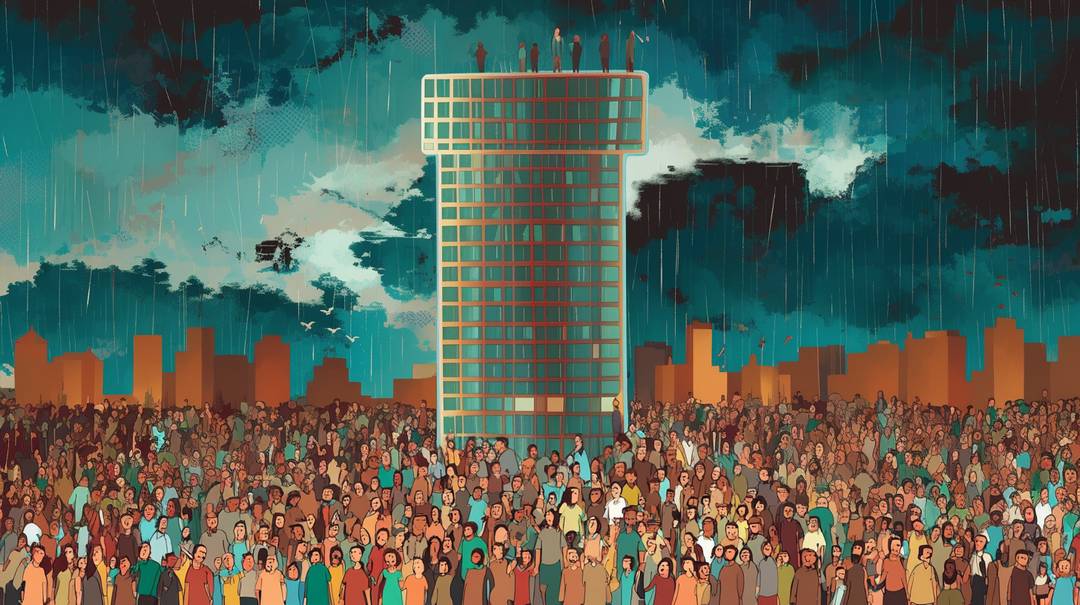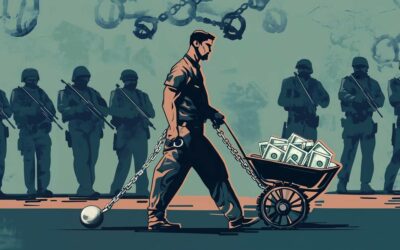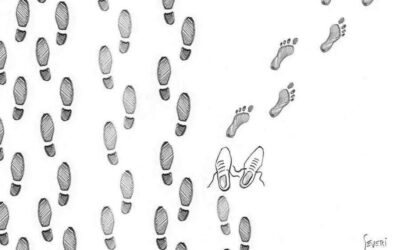Is it power to the people individually, or to the collective of people?
Democracy literally means that people have the power (demos = people, kratos = rule), or rather SHOULD have the power.
There is a great difference in whether the power is with the “collective of people”, or with each individual. Both can be seen as just as “democratic”!
It is a night and day difference of democracies though – sort of like when you talk about “equality”. Do you have equality of opportunity, or equality of outcome? Those two are polar opposites of each other!
The so called “left” (that I don’t think should be called as such, but that’s a topic for another post!) has been very good at deliberately mixing up these concepts, and when faced with any criticism, they go to inkfish battle mode – muddying up the waters of what is actually being talked about so they get the upper hand. They pose as the harbingers of all that is good and holy (and judge you as opposing those things!), while actually advancing a very dark ideology of state-level collectivism.
How does the power get taken away from the individual to the collective?
Slowly but surely! Perhaps the main (but not the only!) mechanism behind this is the fact that in practice, democracies are almost always representational democracies, not direct democracies. People outsource their power to their elected representatives, usually for 4 years at a time, who then go do with that power what they see fit. This may or may not be what the people actually had in mind.
It is easy to promise everything to the people before the election, only then to take everything away from them after. There is no real accountability, other than getting re-elected, but that can be done by maintaining the appearances of doing what was promised, not actually doing it.
This disconnect between the people and power slowly (or quickly!) erodes the original foundations of societies it’s been implemented in, because it allows for the power to be transferred from the individual to the “collective” (which you should read as “the party elite!“) stealthily without anyone noticing – until it may be too late.
Most western societies may be beyond saving
I’d argue that the western societies are mostly in the “too late” phase, at least unless something really radical happens. I’m not advocating for radical action, except on an individual level: vote radically against the party elite with your feet – check out Sovereign Landing! 🙂
The main reason for the “too late” phase is that most of the people have been brainwashed into WANTING the things to be the way they are.
Also, the school system is completely under the machinery of the state, working the brainwashing machine through the full lifecycle of the people. None of this is coincidence. This results in the tragedy of “Homo Sovieticus” – people being so institutionalized into the system that they cannot even conceive life being different outside the system, let alone being able to act or succeed outside of it.
Because of that, I don’t see these societies voting themselves out of this trap. They should be assumed to be incapable of doing that, and trying to fight that is a losing battle.
THE FIX
As voting can’t be expected to be the solution, that leaves two other theoretical options:
1) Action within the country outside the political system
2) Leaving the system (and maybe building something new)
Option #1 has traditionally often meant some kind of violent action, usually with little success and very high cost, both to the people trying to change things through violence, and to the society at the receiving end of this action. The existing states have become very efficient in nipping these ideas at the bud.
There are perhaps some non-violent ways to affect change outside the political system, but this gets back to the problem of democracy itself: if the people don’t want to change, it is next to impossible to force them to change. Very high cost in effort, for very little (or negative) return.
Even though it’s painful, we need to leave these people to divvy up their ever-dwindling cake, even though we see how it will end up: in poverty, like every socialist experiment before.
Leaving the system is an individual-level solution for the short- and medium term. Longer term and on a societal scale, we need to fix the problem of forced (state-level) collectivism so that our societies can function again.
Here’s the good news: The solution doesn’t require taking the power away from the people! On the contrary, power can and should be given back to the people. The way to do so is discussed in part two of this post!




0 Comments